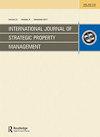养老地产领域的再投资业务模式转型
IF 2
4区 管理学
Q3 MANAGEMENT
International Journal of Strategic Property Management
Pub Date : 2024-03-27
DOI:10.3846/ijspm.2024.21095
引用次数: 0
摘要
本研究探讨了 2007 年《房地产投资信托基金投资多样化和授权法案》(RIDEA)对房地产投资信托基金(REITs)及其与美国养老地产行业运营实体的合作关系所产生的变革性影响。我们探讨了作为资产所有者和管理者的房地产投资信托基金如何调整其商业战略,以应对不断变化的商业环境。本研究采用扎根于佐特和阿米特(2010 年)商业模式概念化的案例研究方法,识别并分析了市场参与者对价值提升方法认识的显著转变,其中不仅包括传统的租金收入,还包括物业管理者的运营绩效。研究结果表明,在新实施的基于 RIDEA 的业务框架的推动下,风险和利润分担机制得到了扩展,与传统业务框架相比,促进了房地产投资信托基金和运营商之间的利益一致。新模式下的这种效应有可能显著提高资产管理公司的运营效率,但同时也带来了金融和市场风险增加所带来的复杂性,以及劳动力管理方面的挑战。我们的研究结果为包括房地产投资信托基金、运营商、投资者和政策制定者在内的行业专家提供了宝贵的见解,丰富了他们对养老地产领域不断演变的商业模式的理解。本文章由计算机程序翻译,如有差异,请以英文原文为准。
BUSINESS MODEL TRANSFORMATION OF REITS IN THE SENIOR HOUSING SECTOR
This study examines the transformative impact of the REIT Investment Diversification and Empowerment Act (RIDEA) of 2007 on Real Estate Investment Trusts (REITs) and their partnerships with operating entities in the U.S. senior housing industry. We explore how REITs, functioning as both asset owners and managers, adapt their business strategies in response to the evolving business landscape. Employing a case study approach rooted in Zott and Amit’s (2010) conceptualization of business models, the study identifies and analyzes notable shifts in market participants’ recognition of value-enhancing approaches, encompassing not only traditional rental income but also the operational performance of property managers. The findings reveal an expanded risk and profit-sharing mechanism propelled by the newly implemented business framework based on RIDEA, fostering enhanced alignment of interests between REITs and operators compared to the traditional business framework. While this effect under the new model holds the potential for significant enhancements in operational efficiency for asset managers, it concurrently introduces complexities arising from heightened financial and market risks, as well as challenges related to workforce management. Our findings offer valuable insights to industry experts, including REITs, operators, investors, and policymakers, enriching their comprehension of the evolving business models within the senior housing sector.
求助全文
通过发布文献求助,成功后即可免费获取论文全文。
去求助
来源期刊
CiteScore
4.00
自引率
18.50%
发文量
23
审稿时长
15 weeks
期刊介绍:
International Journal of Strategic Property Management is a peer-reviewed, interdisciplinary journal which publishes original research papers. The journal provides a forum for discussion and debate relating to all areas of strategic property management. Topics include, but are not limited to, the following: asset management, facilities management, property policy, budgeting and financial controls, enhancing residential property value, marketing and leasing, risk management, real estate valuation and investment, innovations in residential management, housing finance, sustainability and housing development, applications, etc.

 求助内容:
求助内容: 应助结果提醒方式:
应助结果提醒方式:


